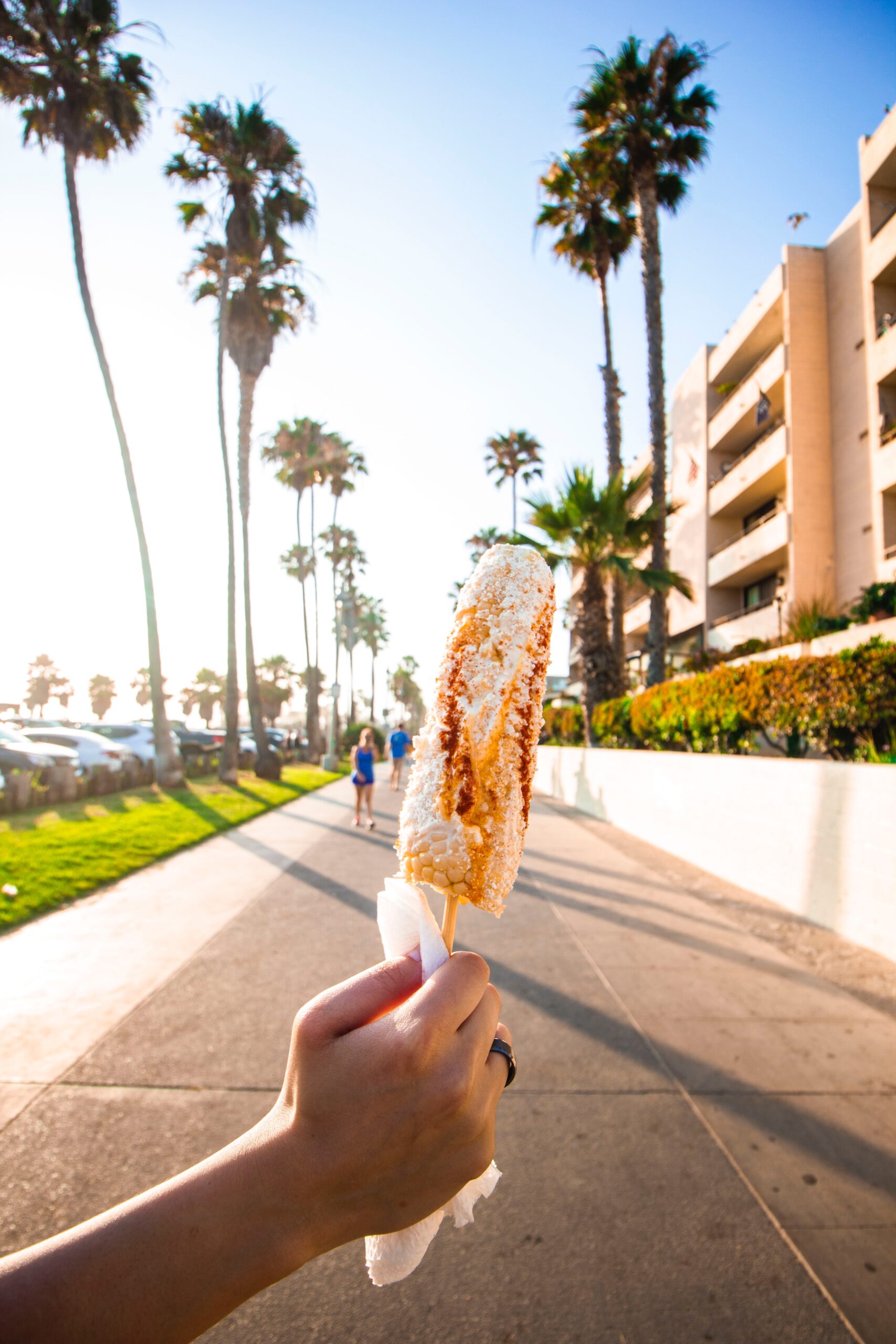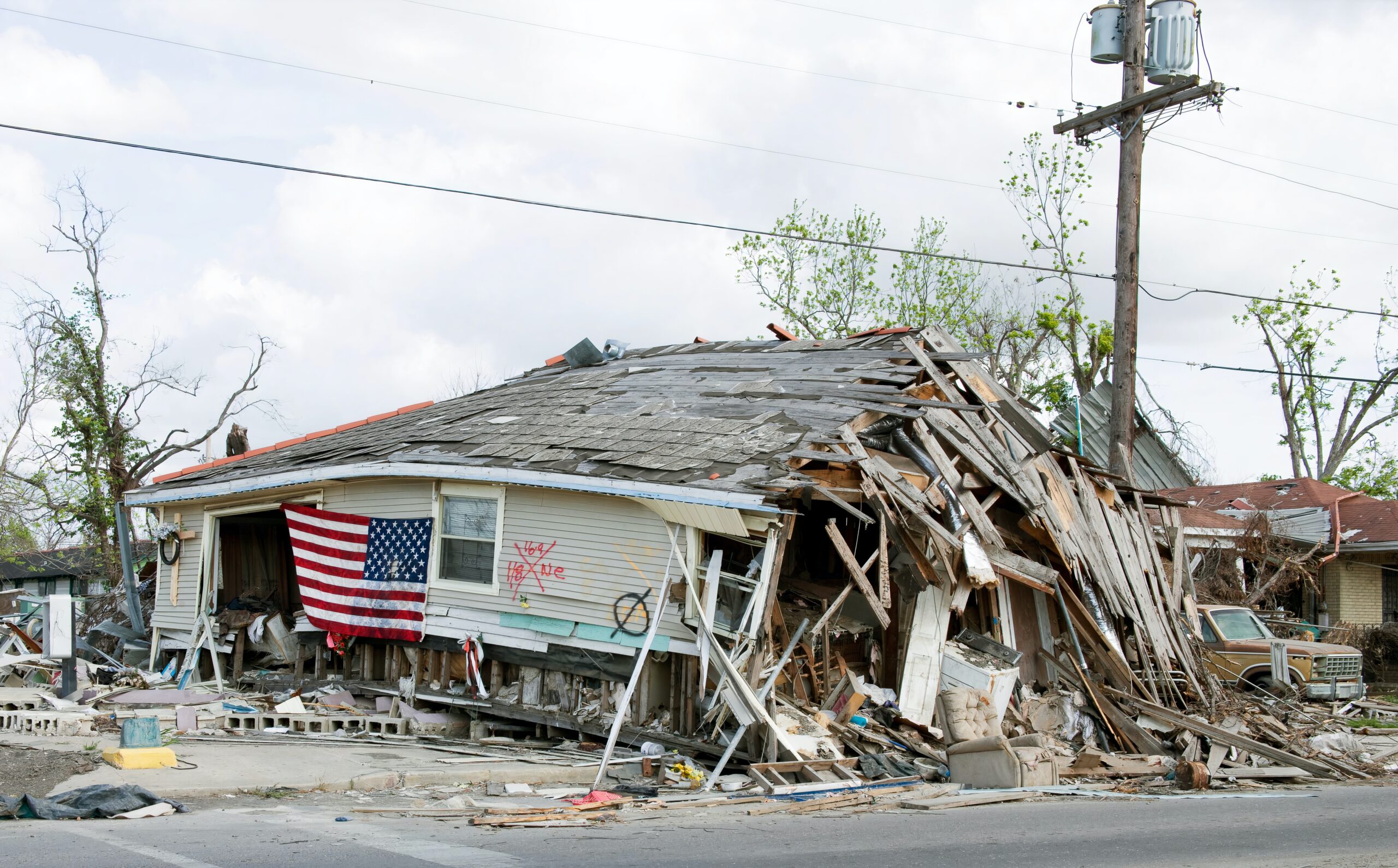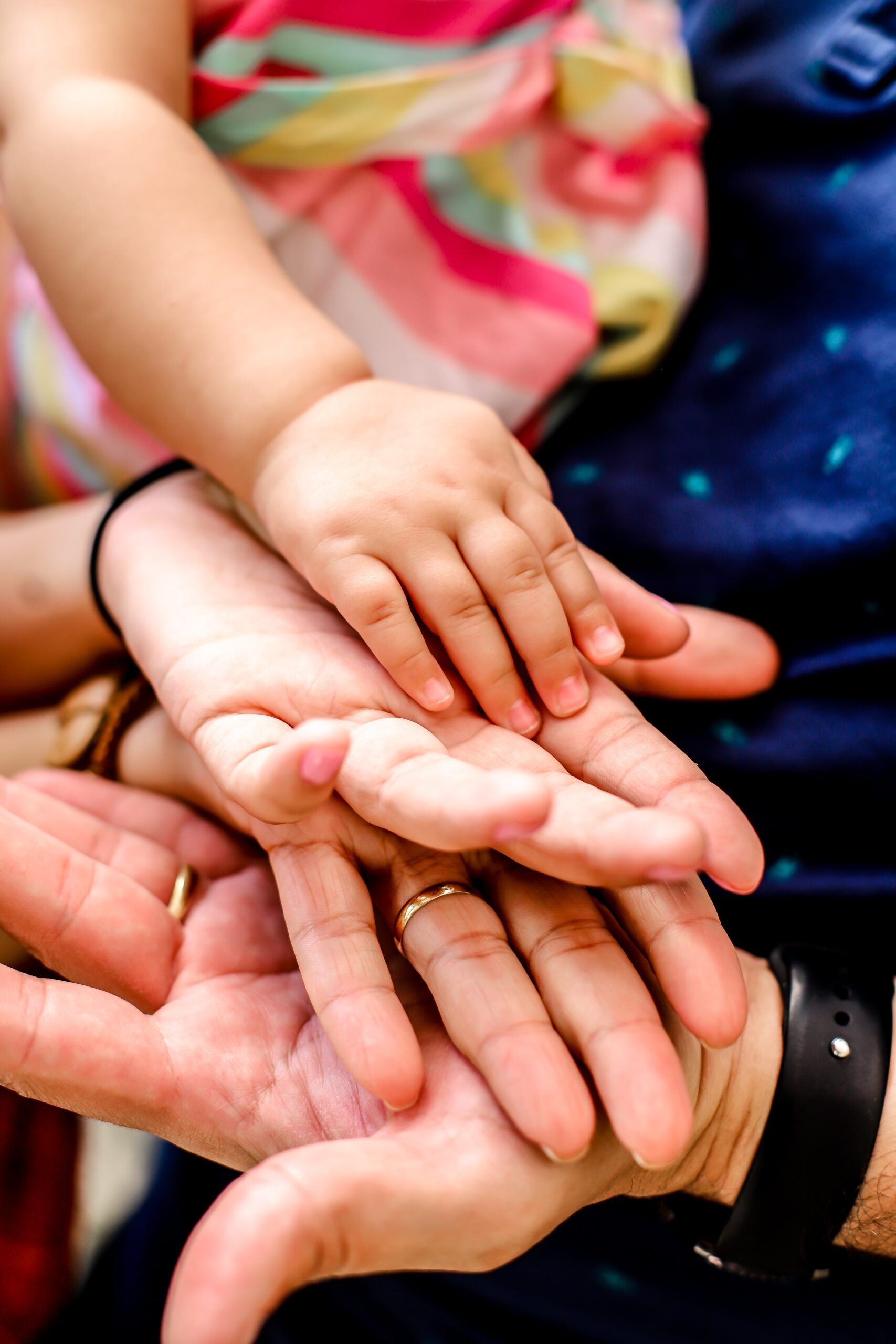
Elote in Venice Beach, Los Angeles
In the year 2019, the World Health Organization reported that mental health living conditions were the single largest cause of disabilities in the world. It is estimated that in 2016 around 70% of the people who needed access to mental health services were unable to get them. The growing threat of climate change has increased the volatility and frequency of natural disasters, which have been linked with a higher incidence of poor mental health outcomes, especially for those coming from underrepresented communities. As the environment continues to deteriorate, natural disasters are expected to become more dangerous.
Prior to Hurricane Katrina’s landfall in 2005, the city of New Orleans was already struggling to provide adequate and affordable mental health services to its population. In 2007 Dr Kathleen Crapanzano of the Louisiana Office for Mental Health said that before Katrina, the city lacked the proper funding to serve the full spectrum of mental health conditions, as the available beds for patients with psychiatric needs were granted to those living with severe conditions. There was no place for the moderately mentally ill to go. Before Katrina, there were 196 psychiatrists trained to treat mental conditions in the city of New Orleans, and after the hurricane struck in January, only 26 trained psychiatrists were available to treat mental conditions in December of that year.
A pressing issue related to the accessibility of mental health in the city after Katrina was the lack of available beds for patients who were seeking treatment. The available mental health beds in local hospitals of the city dropped from 487 to 190 after the hurricane. Many of those beds were already filled by patients living with severe mental conditions, which left those experiencing milder symptoms with nowhere to go. As people began to settle back in New Orleans, the city’s lack of mental health infrastructure quickly turned the issue of untreated mental health concerns into a crisis. Police officers started attending a large number of calls related to crimes or incidents allegedly caused by mental health problems. They would deal with these patients by taking them to local hospitals in order for them to receive the adequate support. After hospitals began to receive more and more patients in their ER with mental health-related concerns, the staff started to discourage police from bringing them in.
Street vendors have existed in large urban settlements for years. Through the art of affordable food and family recipes which have traveled across generations, food vendors around the world have become a unifying force for fragmented societies. Despite their popularity amongst locals and the charm that they bring to cities, street food vendors continue to face hostility from local governments around the world. For example, in Bangkok authorities have evicted thousands of its most popular vendors and in Europe anti-immigrant sentiments have increased hostile treatment towards street food vendors. Regardless of the increasing restrictions and stigma faced by street vendors in different countries around the world, they have kept doing what they know best, feeding their communities.
Street food vending in Los Angeles dates back roughly to the 1870s. The consolidation of California as a state, combined with the construction of the transcontinental railroad and the arrival of the gold rush, largely influenced the rise of street vending culture in the city. During that time, people migrating from China and Mexico began to serve their homeland’s recipes to Los Angeles city goers. In the 1920s, the streets of Downtown Los Angeles were flooded with vendors selling food all over the world. Following the “street vending” boom of the 1920s, authorities in Los Angeles began to criminalize and regulate street sales which largely affected the Chinese immigrant population of the city. Regardless of the efforts targeting the elimination of these services, street vending in Los Angeles has persevered and has evolved into a cultural icon for many Downtown L.A. neighborhoods like Boyle Heights. The attempted exclusion of food vendors from the streets of Los Angeles is a tale of racism and xenophobia, which has not only forced people into depending on the informal economy to sustain their livelihoods, but has also punished their enormous success.
Despite having produced roughly 500 million US dollars in revenue in the year 2017 and employing over 500,000 people, street vendors in Los Angeles were frequently persecuted by local authorities and charged with misdemeanors for lacking the adequate permits for selling food and other items in the streets of the city. In the years following the state of California’s decriminalization of street food vending, a vibrant community of activists, made up of a mostly immigrant population, began to push for the legalization and protection of street vending services. The fight for the decriminalization of street vending in Los Angeles was not only about selling items for revenue. It was also a bigger movement to protect the immigrant population of the city who had been feeding Los Angeles city goers since the late 1800s. Former President Donald Trump administration’s policies targeting immigrant people in the United States were thought to be a large propelling force for the government of California to legalize and regulate street vending in the city.

Post New Orleans Katrina
In order to protect the street vendors of Los Angeles and other cities of the state, the government of California enacted a legislation which eliminates some of the legal hurdles that street vendors face when it comes to acquiring a sales permit. Before this landmark decision was made statewide, the local Los Angeles government had begun supporting street vendors in other ways. For instance, in the year 2017, the Los Angeles City Council voted to change a law which affected street vendors who had misdemeanors related to “unauthorized selling.” After this legislation was passed, street vendors who had unpaid fines as a result of lacking permits would not face any misdemeanors. This was an enormous step in the fight towards the legalization of street vending services as in 2016, the city’s authorities had collected around 10,000 dollars in fines from unauthorized vending.
Despite the increasing attempts to make the streets of Los Angeles a more inclusive environment for street vending, vendors continue to face a variety of problems. For instance, attitudes of racism and xenophobia target street vendors as some Los Angeles residents have become apprehensive towards their role in the city and state’s economy. Furthermore, while the issuing of several laws has made permit acquisition smoother, many vendors in Los Angeles still encounter hurdles when it comes to the legalization of their businesses. Coming from a mainly immigrant background, many of the individuals selling products in the streets do not have the means to buy a permit or obtain authorization to sell their own goods. The legalization of street vending in the state was a great first step towards ensuring a better environment for street vendors, but there is still a lot of work that needs to be done in order to protect and recognize these people as valued community members of the city.
Much like street vendors in the city of Los Angeles, New Orleans residents living with moderate mental health conditions could benefit from the recognition and protection of the state. Street vendors do a great deal of social fabric knitting in the places that they occupy, which has not only made them gain the respect and love of other locals but has also turned them into fundamental community members. The relationship that exists between street vendors and the operation of large cities is just a large-scale example of what goes on in a loving family. Each member provides a unique service to the running of the entire system, and receives love, protection, and nurturing in exchange. In large urban cities where the formal economy employs a few, street vendors represent the value of alternative ways of living. In order to solve the accessibility and accommodation crisis that New Orleans is facing when it comes to providing adequate care for mental health patients, the city could follow the example of the legalization of street vending in L.A.
People living with mental health conditions in New Orleans could benefit from having a better sense of belonging. After years of neglect and stigmatization, these residents need a loving environment where they can thrive and evolve. Building more spaces of family and community are great ways of nurturing the sense of belonging of mental health patients. In order for this to work, people living with mental health conditions need to become important players within a family environment. Street vendors in Los Angeles offered whatever recipes they knew how to make from their childhoods and while providing cheap street food might have seemed like a simple task, they ended up significantly contributing to the large-scale functioning of the city. Not only did they contribute a great deal of profit to the state’s economy, but they also brought forward a solution for concerns related to food insecurity and the malnutrition rates of local children. This shows that even the smallest of roles can contribute a lot to the inner workings of a large social system.

“Families are just like cities”
Families are just small cities. Mental health patients can contribute a variety of skills to a family setting. For instance, people living with obsessive compulsive disorder or anxiety might bring an increased sense of empathy and responsibility for other family members. Similarly, patients living with neurodivergent conditions can add a diverse outlook on family problems by bringing “out-of-the-box” solutions. Community and family can shift a person’s life, especially if that person has been systematically neglected and forgotten by society. Street vending in Los Angeles is just one successful example of how having an increased sense of belonging can transform your life and the opportunities that you have access to.
To solve the mental health accessibility crisis of New Orleans, patients living with moderate mental health conditions who are unable to access housing at local hospitals or other institutions should be placed in the homes of local families or couples looking to expand their numbers. In this way, patients can access housing while being sought after and taken care of. They can contribute to the functioning of their new families while receiving love and care in exchange. But what about their own families? Not every mental health patient is an orphan or lacks a nurturing environment. The same is true for street vendors. Before waking up early to serve the residents of their cities, they are first parents, mothers, brothers, and sisters. While they have a bigger role to fulfill which is achieved by the services that they bring to their cities, they are also players in their family environments. Regardless of whether they already have a family or not, this solution can allow mental health patients to see the impact of their roles in the functioning of an ecosystem. Sometimes, when you are made to be invisible in a system, you stop to notice the impact that you bring forward to the running of the place. This is why, placing New Orleans mental health patients with loving families looking to expand their members, can allow them to understand the importance and value of their existence, regardless of what society has told them about their worth.
Placing strangers living with mental health conditions into local families might not be a completely seamless solution. Things are expected to go wrong and maybe a lack of compatibility will make things awkward and stagnant. However, one must recognize the vibrance and resilience of the New Orleans community. After enduring decades of hardship with extreme weather-related events, the New Orleans community has learned the importance of helping one another when outside help never arrives. The mental health services accessibility crisis in New Orleans requires a creative solution. In many ways, the local sense of camaraderie and pride has made New Orleans mimic the functioning of a family. Just like decriminalizing street vending and improving access to health care for mental living conditions, the functioning of a family is complex. While things might be bound to go wrong in some ways, resilience, love, and an improved sense of belonging are sure to make this solution go a long way.
This piece was edited by Jiayi Xu as part of Professor Kelley Crawford’s Digital Civic Engagement course at Tulane University.
 NOLAbeings Multimedia artist Claire Bangser created NOLAbeings as a portrait-based story project that marries...
NOLAbeings Multimedia artist Claire Bangser created NOLAbeings as a portrait-based story project that marries...  Voodoo in New Orleans: Reviving history: New Orleans fortune telling This article takes a deep dive into the history of Voodoo in New Orleans, its hybridization with Catholicism, and its present-day place in the city's culture. The author visits fortune-tellers in the French Quarter, using their guidance as a tool for introspection rather than a deterministic predictor of the future. Through her experiences in New Orleans, the author feels a mystical connection to both the past and the future.
Voodoo in New Orleans: Reviving history: New Orleans fortune telling This article takes a deep dive into the history of Voodoo in New Orleans, its hybridization with Catholicism, and its present-day place in the city's culture. The author visits fortune-tellers in the French Quarter, using their guidance as a tool for introspection rather than a deterministic predictor of the future. Through her experiences in New Orleans, the author feels a mystical connection to both the past and the future. 